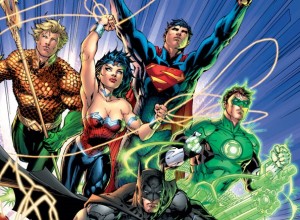On Saturday, word spread like wildfire about a Flash movie and a Justice League movie. This began hours before the Warner Bros. panel at San Diego Comic-Con which eventually released word about the upcoming Batman-Superman movie. DC Comics and Warner Bros. did not end up speaking about movies about the fastest man or the superhero team. While nobody knows exactly what happened at this point, I do have a series possible theories.
What is Rumor Filtering?
There is an upper management tool called rumor filtering. Occasionally, upper management at a company will deliberately start a rumor to see how fast it spreads, determine who spread the rumors, and to gauge some feedback on the rumor. Learning how fast the rumor spreads helps to understand the lines of communication in a company. Determining who spread a rumor can weed out top employees who do not deserve the trust of upper management. If the reaction to the rumor is not as bad as possibly thought, it might be worth making some changes (such as cut-backs, reorganized labor forces, or other things people might look at negatively).
How Could Rumor Filtering Work for Warner Bros.: Communication Channels
It is possible that Warner Bros. and DC Comics might have wanted to see how fast they could get into the papers and online journals with a “major announcement.” If done hours before their panel, they could make sure word travelled quickly enough to be spread within an hour or two.
How would this benefit them? A few hours after the Warner Bros. panel, Marvel took the floor with their movie panel. DC Comics would want to make sure everyone was buzzing about DC Comics and their movies before Marvel took the stage. The “releases” about the Flash and Justice League movies could have been a way to make sure the Batman-Superman movie would be the buzz of the Internet before the Marvel panel got off the ground.
How Could Rumor Filtering Work for Warner Bros.: Weeding
It is possible that Warner Bros. deliberately gave this false information to a website, or to a few reporters, in an attempt to see if they could hold a secret. It could also have been done to discredit a certain website or sites. DC Comics has been dealing with a ton of leaks over the last eight months. The company looks negatively on many sites which publish those leaks.
Let’s say, for the sake of argument, that Site A was given the fake Flash and Justice League movie information. Site A publishes the information as fact and is picked up, with a backlink to the original story, by Sites B – ZZZ. Hundreds, if not thousands, of readers will know within hours that the original story was wrong. Many of those readers might not trust the original site reporting the story.
How Could Rumor Filtering Work for Warner Bros.: Gauge Response
Most of the articles which reported the Flash and Justice League movies as fact had comment sections. Up until the last moments before the Warner Bros. panel, the company had the opportunity to see the comments and enter forums around the Internet. Maybe the Flash and Justice League movie information got out to see what people thought. Maybe those movies are in the works and Warner Bros. needed to know if their panel this weekend was the best time to introduce the information.
How Could Rumor Filtering Work for Warner Bros.: Hide the Truth
One other way rumor filtering might have worked for Warner Bros. this weekend was to hide the truth. By getting everyone talking about Flash and Justice League movies, maybe they would have the chance to sneak in the Batman-Superman movie announcement without an issue. Maybe the shock value would be higher. Maybe, ten years from now, someone at Warner Bros. or DC Comics will write a memoir and talk about what happened with the Flash and Justice League movie announcements.
